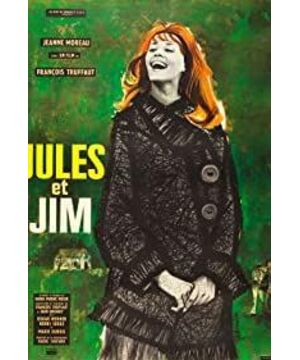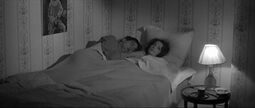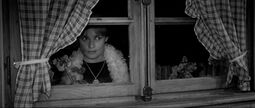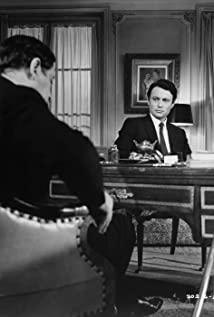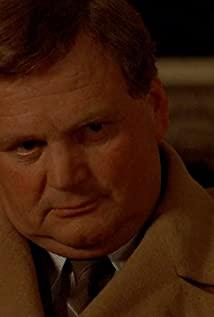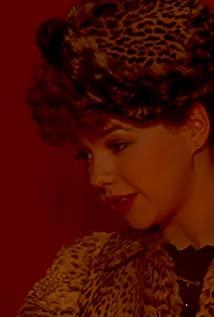"Juul and Jim", a black humorous romance film, is the third film made by Truffaut. 1960 was the period when the French "New Wave" was surging. Later, many critics believed that this film with the theme of love entanglement was a mature work of Truffaut's new wave film. Later, he made a series of films, including commercial films, and none of them could escape the pitfalls of this film. The 1930s film master Jean Renoir who is most admired by Truffaut once said: "A director only shoots one film in his life, and his other works are just the annotations and explanations of the film. As for the theme, it is only This film is just an extension and expansion." After "Juul and Jim", he shot "Twenty-year-old Love" (1962), "Tender Skin" (1964), and "Fahrenheit 451" (1966). , "Steal a Kiss" (1968), "Mississippi Siren" (1969), "Marriage Life" (1970), "Two British Women and the European Continent" (1971), "A Beautiful Girl Like Me" (1972) , "The Story of Adele" (1975), etc. The themes of these films always run through the entangled love issue between men and women, and the man trapped in love in the film is often the incarnation of Truffaut. Any director uses film as a medium to promote his own worldview and philosophy of life, and Truffaut sees film as a vehicle for expressing personal inner emotions. In each of his works, it is not difficult for us to find his shadow: his childhood experience, the emotional ups and downs in growing up, the vision of the perfect ideal love, and his concept of love.
"Juul and Jim" is an adaptation of Truffaut based on Henry-Pierre Roger's novel of the same name. Although the subject matter is borrowed from others, the theme and concept of the film are still Truffaut's own. Pete Varan said in his book Semiotics of Cinema: “The film director should not be attached to the author of the subject matter he adapted. The adapted work is nothing but his borrowed object. The director uses this borrowed object to Fuse your own ideas and ideas, and transform them into something that belongs entirely to the director." In this film, Truffaut promotes his gender concept: women are mature and cunning (Katerina is the representative) , Men are fragile and immature (Jul is typical). A man is always an emotionally rich eldest child. He longs for the double comfort of a mature woman for his motherhood and lover, so a woman is always in a dominant position of omniscience and omnipotence. In the films listed above, this concept always recurs in different ways.
From this film, we can see that Truffaut and the original author Roger have the same views on the issue of love. Roger said: "People are irrational when it comes to love. They rely on intuition and subconsciousness to love and be loved, otherwise it would not be true love." In the film, Katerina and Juul, Jim and Gilbert, Jim and Katerina's love affair is all based on sex, in which there is neither power, fame nor fame, money and other factors as intermediaries. This is exactly the "holy love" that Truffau pursues. The reason why Jul and Jim fell to Katerina is entirely because they found the image of the Greek goddess of the Greek island in her body. They were driven by intuition and subconsciousness to devote everything to this woman.
Truffau believes: "The true spiritual reality of man is controlled by the subconscious. And one of the main contents of the subconscious is sex." That layer of disguise and unreal "super-ego" social psychology is captured by Trüver in the film. Eh deprived it all. He makes the people in the play remove the "constraints" that deliberately restrain themselves, and let people's intuition and instinctual consciousness flow freely. The various reactions that Jim and Catalina made when their emotional world was out of balance and their spirits were out of balance, until they were both buried at the bottom of the Seine, were all due to the coercion of their psychological mechanisms. Freud said: "The artist is driven by the strong impulse of narcissism, hoping to gain fame, power, wealth and love. When it is difficult for him to realize these wishes, he will inevitably escape reality and transfer his instinctive impulse and all his interests to Go up to the image you expected in your fantasy.” It was in the absence of love and fame and fortune that Juul and Jim ran to the Greek island and accidentally found a fascinating stone sculpture. They are lazy and bored, "living a holiday life every day", and the pursuit of the opposite sex has become the whole content of life, and it is also a manifestation of escaping from reality.
Like other young directors of the "New Wave", Truffau adopts an anti-traditional attitude in the subject matter and uses irrational feelings to exaggerate his ideals. It is for this reason that he chose Roger's novel. At the age of 29, Truffau was aware of the hypocrisy and evil in social life, so he was uneasy, but did not know the true meaning of life, so he explored this theme in this film: two people (Juul and Jim) The friendship between) seems to be maintained under any circumstances, but the life of three people together (Juul, Jim and Katerina) is impossible to achieve. Since ancient times, love triangles have been everywhere. How many perfect families can be made up of a man and a woman? Are there other more ideal solutions? Truffaut seemed to have found a negative answer in a mocking but sentimental mood. As society changes, the family system will continue to change. Monogamy, which has been inherited from feudal society to the present, was hit by a "trend of modern civilization" that was anti-traditional social system in Europe at the beginning of this century. This film truly reproduces the social scenes of Europe before and after the catastrophe of the First World War. With the disappearance of religious and moral traditions, people have a strong sense of decadence when the "end of the world" is approaching. The escapist young people are cynical, drunk and indulgent, and psychopathic. Juul and Jim, a group of little bourgeois who advocate anarchism, pursue an unfettered love life, which is resonating with Truffaut's emotional world. When phenomena such as "natural return", "forest gregariousness" and "experimental marriage" appeared one after another, Jim's dream of living under the same roof with Katerina, Juul, Gilbert and his children, we listened to It seems absurd, but it is definitely not a dream in the West.
Truffau has a strong tendency to pursue perfect ideals, and he aspires to reach the real perfect state of love. Juul in the film is his incarnation. Truffaut said that the consequences of people’s over-persistent pursuit of true and perfect love are often constant disappointments and frustrations, because reality is always rough, and true ideals and happiness do not exist in reality, but people Never know this truth, so I can't extricate myself from despair. Only after experiencing constant blows can they wake up and gradually become mature, until they finally realize that true happiness is just an illusion. If anything, it is extremely short-lived or fleeting. At the end of the film, Zhu Er, who had converted to Buddhism after numerous blows, saw his infinitely nostalgic wife and his close friends buried under the river. It seemed that he felt relieved and relaxed. He said to himself: "Now life has become much simpler." From his last helpless indifferent expression, it seemed that he had gradually reached the mature state of Dacheda Enlightenment.
The film is all shot in real scene, and there are a lot of long-range shots. Truffaut used scene scheduling and long-lens shooting to cancel the montage editing, and adopted the unskilled editing method. The natural dialogue and natural movements of the actors, without a trace of pre-designed ones, make the film real and natural, showing a simple and unpretentious style. The great success of this film is inseparable from the outstanding performance of the famous actor Yana Moreau who plays the heroine Katerina. The greatest feature of Morrow is that he can grasp the role with a high degree of accuracy. This big star born in the Comédie Française, in the late 1950s and early 1960s, played the role of a generation of petty bourgeois intellectuals suffering from the "diseases of the century" and has always maintained the highest box office value record. Her view of "boringness breeds sexual desire" is not only in line with the mentality of the heroine in "Night" (1960), which Antonioni invited her to film, but also in complete harmony with Catalina in "Juul and Jim". So Moro said that when she played Katerina, she completely forgot that she was making a movie. Catalina's lines are exactly what she has buried in her heart for a long time and she wants to shout out loudly.
"Juul and Jim" is considered by many film critics to be an outstanding masterpiece of Truffaut. Like Truffaut's other films, the storyline is not complicated and the theme is simple, but because it touches people's urgent concerns in real life. Problem, so it is easier to resonate with the audience.
View more about Jules and Jim reviews


